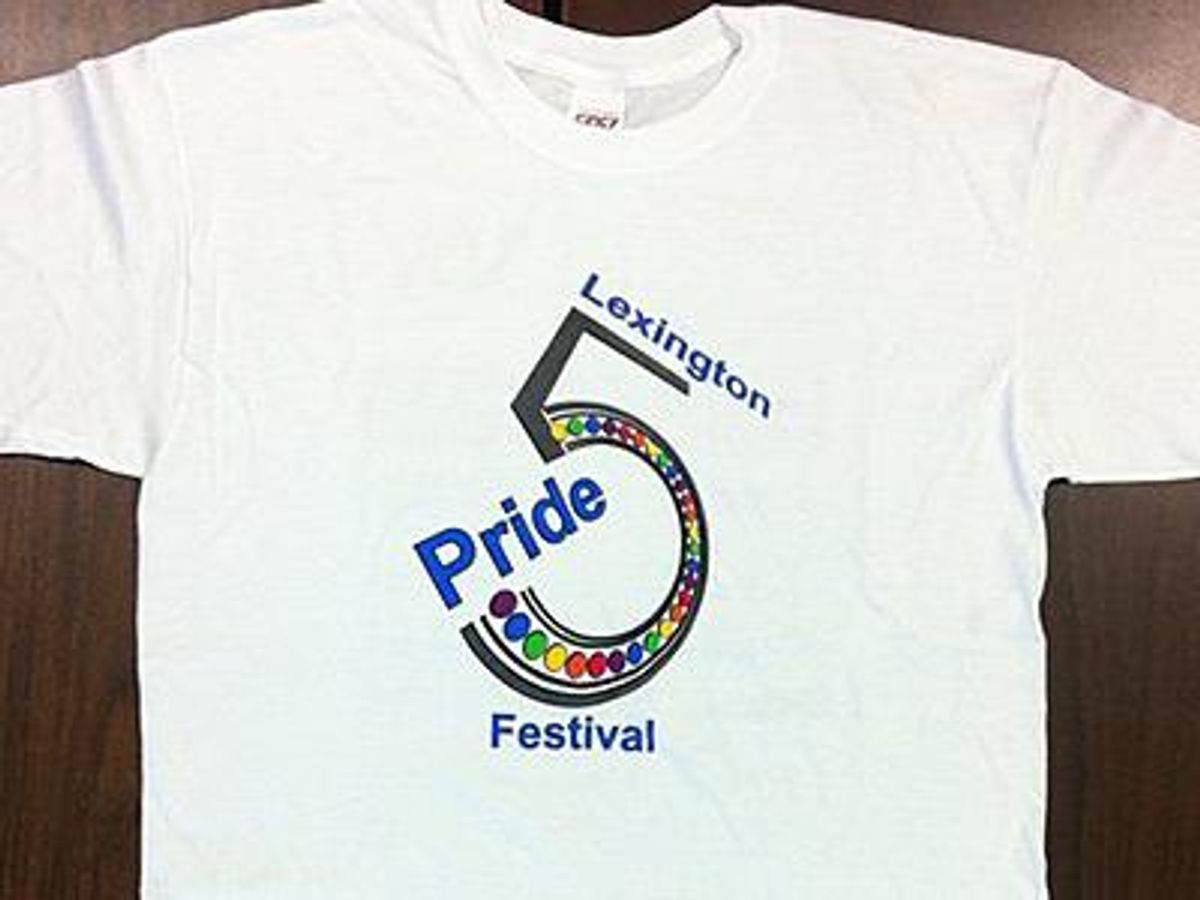
A court ruled a Kentucky company owned by Christians had the right not to print gay pride T-shirts
April 29 2015 9:47 PM EST
May 26 2023 3:10 PM EST
Lifeafterdawn
By continuing to use our site, you agree to our Private Policy and Terms of Use.

A Kentucky court has ended a three year legal battle over LGBT rights by ruling in favor of a Christian-owned T-shirt company, declaring the business has the right not to print gay pride festival shirts.
The Washington Post reports a group called Gay and Lesbian Services Organization (GLSO) submitted a business proposal to Hands on Originals (HOO), a printing company in Lexington, to print shirts by for its 2012 pride festival.
The company turned down the order, and so in November 2012, the GLSO filed a complaint with the Lexington-Fayette Urban County Human Rights Commission.
The owners of Hands on Originals acknowledged their business was a "public accommodation" covered by the ordinance.
Last year, the commission ruled in favor of the GLSO, citing the county's Fairness Ordinance, which bars -- among other things -- discrimination against individuals in public accommodations based on sexual orientation (defined to mean "an individual's actual or imputed heterosexuality, homosexuality, or bisexuality") or gender identity.
But on Monday, Judge James D. Ishmael of the Fayette Circuit Court reversed the ruling.
"This Court does not fault the Commission in its interest in insuring citizens have equal access to services, but that is not what this case is all about," Ishmael wrote.
The trial court judge drew a legal distinction between a company choosing not to print T-shirts because of the sexual orientation of a potential customer and choosing not to fulfill the T-shirt order because of the message the Christian owners would be hired to print on those shirts.
The owners of the company "are Christians who believe that the Holy Bible is the inspired Word of God and that they should strive to live consistently with its teachings," Ishmael wrote in the opinion. This statement appears on the company's website: "It is the prerogative of Hands On Originals to refuse any order that would endorse positions that conflict with the convictions of the ownership."
In response, the GLSO said in a statement posted on its website that the reversal was a disappointment. "We feel that this is a reminder that there are still many out there who feel that their citizenship is worth more than that of members of the LGBTQ+ community. This is merely another battle on what has been a long road to full equality for the LGBTQ+ community; which, despite this decision, has been trending toward equality for all. We will discuss this ruling with the Lexington Human Rights Commission and our lawyers, and make a decision on how we will choose to proceed going forward."
Judge Ishmael capitalized one word in his opinion to emphasize a point: "It is clear beyond dispute that HOO and its owners declined to print the T-shirts in question because of the MESSAGE advocating sexual activity outside of a marriage between one man and one woman," he wrote. "The well established Constitutional rights of HOO and its owners on this issue is well settled."
The court noted that the printing business had also turned down orders for "a strip club, pens promoting a sexually explicit video, and shirts containing a violence related message" to bolster its opinion the decision to reject the order had nothing to do with the homosexuality of the GLSO, its representatives or members, but "about GLSO's mission and what the organization generally promoted" in the Pride Festival.
Judge Ishmael wrote the commission had gone so far as to "punish" the business owners for standing by their First Amendment right to practice Christianity.
"HOO and its owners, because they refused to print the GLSO T-shirts that offended their sincerely held religious beliefs, have been punished for the exercise of their Constitutional rights to refrain from being forced to speak," the judge wrote.
Ishmael found the commission also violated Kentucky's Religious Freedom Restoration Act, and wrote in his opinion that there is sufficient legal precedence.
"If Massachusetts could not compel [St. Patrick's Day] parade organizers to include a group advocating a [gay rights] message that the parade organizers did not support, [Hurley v. Irish-American Gay, Lesbian & Bisexual Group of Boston (1995),] how can the LFUCG Human Rights Commission interpret the "Fairness Ordinance" to compel HOO and its owners to print a t-shirt conveying a message that HOO and its owners do not support and in fact find blasphemous? The Court holds that the Commission cannot take this action consistent with the U.S. Constitution."
Viral post saying Republicans 'have two daddies now' has MAGA hot and bothered